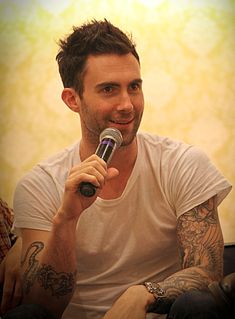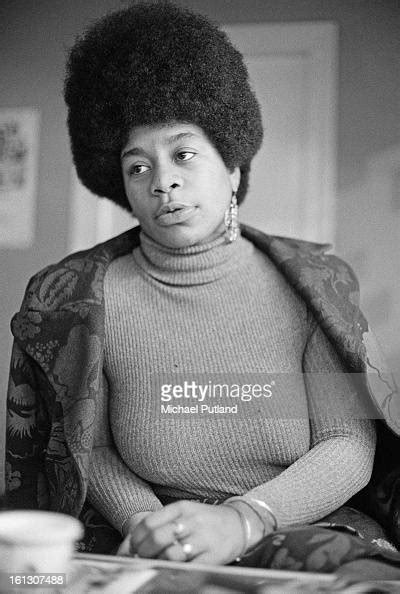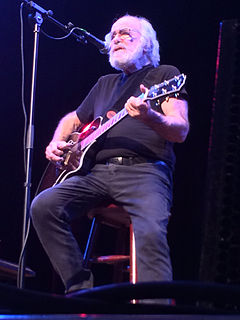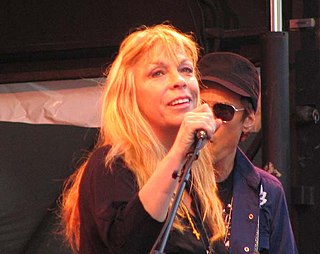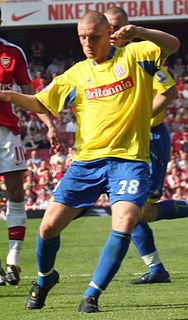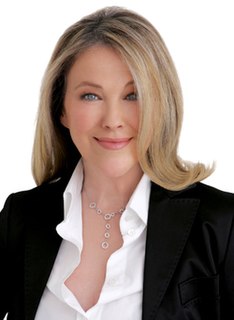A Quote by Julien Baker
One thing I'm super aware of in my music when I'm writing is: 'Am I overcomplicating this?' I'll write a song about some deep existential quandary and explore all these dumb thought waves, and then think 'Is it effective to say that? Or is it effective to say one simple thing that communicates the feeling better?'
Related Quotes
I can't say that I'm always writing in my head but I do spend a lot of time in my head writing or coming up with ideas. And what I do usually is write the music and melody and then, you know, maybe the basic idea. But when I feel that I don't have a song or just say, God, please give me another song. And I just am quiet and it happens.
We hope that there will be nothing that conflicts with anybody's religion or faith. We would never say a person's religion is not effective. We say, 'Would you be interested in something more effective?' We always put things in an optimistic, progressive perspective. 'Do you want to make your prayers more effective? Not that they are not effective, but do you want to help them become more effective?'
I have a notebook that I take with me everywhere. I free-write in it when there are situations that I know I can write a song about. I will just start writing everything that I can think of while trying to write some things that are kind of poetic or sound like they could be in a song. Then, after the music is written, I go back and look at my subjects to see which one I think woud go with what music. Then, I formulate it into a melody and get the song.
An effective leader is willing to think about what's happening and how to understand what's going on. Facilitating flow and making others more conscious of it, the leader communicates an awareness of process to the group, making them more aware of their energies and options. One important principle is to keep track of who has not spoken. ... It's also important to notice when people do speak out but are not heard. Effective leaders practice patience, reminding themselves to wait and observe, remembering that there's always more going on in a group than we're consciously aware of.
Every song falls short of the glory of what a song could be. That's why the urge is there to start again and yet again. Often it's the fault of rhyme. I've discovered a hundred times that there just aren't enough rhymes to say what I wanted to say, so I said something else instead. Sometimes it was a better thing, but the thing I meant to say went unsaid. So there's an opening for another song.
I think I have to work to write a happy song. I write them carefully; they're simple and they're about when it's fun to walk down the street. You know? Because that's the best thing about when you're happy. It's just one little thing that makes you happy, and you're making friends. The kind of thing I can do is capture this moment.
I'm writing this down, because it is going to be hard for me to say it. Because this is probably our last time just us. See, I can write that down, but I don't think I can say it. I'm not doing this to say goodbye, though I know that has to be part of it. I'm doing it to thank you for all we have had and done and been for one another, to say I love you for making this life of mine what it is. Leaving you is the hardest thing I have to do. But the thing is, the best parts of me are in you, all three of you. You are who I am, and what I cherish in myself stays on in you.
I say to my students that I can't teach them how to write a good song, but I can teach you how to write a better song. Talking about this idea of it being a process. By going back and not settling for something and find a way to step back from your songs-which is a very hard thing to do-but when you're stuck or you can't move forward, start doing some polishing.
When you sit down and write a song, you kind of have the idea for the song, and you sit there at the piano and you kinda just write it. And then of course later there's some dinking around with it and changing some stuff. But there's this thing that happens when the song first comes out, that sort of magic when it first comes out of the ether, and you can't even really explain where it comes from. That happens so much with music, and people understand that with music. But I really think that a lot of movie and TV should be the same way.
I think the most important thing is just to write. It sounds so simple, but sometimes it's not. You can get so distracted - -by having to work other jobs, or what other people have to say about your writing - -but the one thing that really matters is that you just keep going, especially when you're working on a novel. It's so easy to get discouraged and give up.
When I first told people I was writing a book, some would say that was interesting, but others thought it was some holiday project and I would lose interest. I think my parents thought the same thing, and they were surprised when I kept going. I'm not sure I thought I would keep going, but then it became a big part of my life.
You see Bill Clinton, and you say: Oh, this guy cares about me. Hillary Clinton isn't the same way. You see her, and you don't necessarily have that view. She's trying to achieve the same thing without the voice and the body language, and she's having a harder time doing it. But when she's effective, that's what she's effective at.

